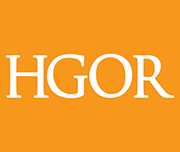HGOR Activates Downtown Atlanta
Mercedes-Benz Stadium, Downtown Atlanta, Georgia. The ultimate experience for sports and entertainment fans and the first professional sports stadium to be TRUE certified at a Platinum Level.
Photo courtesy of ATLAS
Atlanta is a city founded on transformation and has been an entertainment hotspot for years. There are many components to creating an authentic sense of place, and landscape architecture, planning and urban design firm HGOR has spent decades delivering spaces supporting connectivity, social interaction, economic progress, and environmental sustainability.
In developing a culturally diverse, vibrant downtown area, HGOR has played a significant role. By integrating a flexible framework and forethought into comprehensive master plans and designs that led to many well-known landmarks becoming successful social engagement destinations, HGOR has prepared the city for MAJOR activation.
Having hosted three Super Bowls and the 1996 Summer Olympics, Atlanta is gearing up for more history-making events as the host city for the 2026 FIFA World Cup and the 2025 CFP National Championship. These events will bring hundreds of thousands of fans to downtown Atlanta These events will bring hundreds of thousands of fans to downtown Atlanta with FIFA expected to bring $415 million in net economic benefits to the city, presenting the question –
How has downtown Atlanta been prepared for activation?
The HGOR team performs a thorough usability analysis during each project's design phase. A primary consideration is identifying the number of people who will occupy the space - currently and in the future. The team then applies innovative, solution-based approaches to ensure venues support social engagement, pedestrian circulation, accessibility, diversity, and economic wellness. This process delivers a place where people want to be.
Collectively, HGOR's projects in downtown Atlanta are visited by more than 10 million people annually. Logistically, these projects span from redefining the landscape for the 71,000-seat Mercedes-Benz Stadium to transforming Andrew Young International into a central pedestrian corridor to implementing critical land planning surrounding the College Football Hall of Fame, Georgia Aquarium, and Georgia World Congress Center. The combination of infrastructural changes implemented within these projects has effectively defined circulation and engagement opportunities, economic vibrancy, and environmental restoration for downtown Atlanta.
Comfort and safety elements are also priorities for ensuring an unforgettable tourist experience. Adding these necessary enhancements to HGOR's downtown projects has facilitated the city's rebranding and has led developers to notice the thriving area. Additional HGOR projects adjacent to downtown Atlanta, including Centennial Yards, Hurt Park, and the Downtown Atlanta Urban Tree Planting Plan, significantly help to define the area, promoting further growth and activation.
THE GEORGIA WORLD CONGRESS CENTER hosts more than a million visitors yearly for large-scale events. For years, the exterior of the building was mainly vehicular-oriented and confusing for those walking from MARTA or nearby parking lots to the conference center. HGOR's role in this project led to reorganizing the roads, creating a safe, more defined pedestrian experience from the hotel district through the campus while providing a transit-rich density that encourages movement.
MERCEDES-BENZ STADIUM hosts some of the world's largest concerts and sporting events. After the demolition of the Georgia Dome, developers knew that incorporating thoughtful design in and around the new stadium would be critical to creating a seamless experience for visitors. HGOR implemented comprehensive plans to provide clear sight lines and increased walkway space, improving pedestrians' visibility and ease of movement within the heavily trafficked areas.
The Georgia Aquarium, the nation's largest and home to over 1 million animals and hundreds of species, is visited by 10,000 people per day and is adjacent to the College Football Hall of Fame - where thousands of tourists congregate during game days. For both projects, HGOR created designs for the exterior spaces that align with the venues' interface to improve circulation, safety, and appearance - three critical aspects in highly trafficked tourist areas such as these. The projects' increased lighting systems, enhanced streetscape designs, and improved walkways have increased visibility and provide a pedestrian-oriented, welcoming environment. ADA compliance also delivered safer, more amenable conditions for those entering, exiting, and gathering.
Only a handful of U.S. cities are designed to host major events, and Atlanta is one. HGOR's past and current projects set the stage for venues to host thousands of people from every corner of the globe by adding components ensuring comfort, convenience, connectivity, and inspiration. While Atlantans anticipate the coming events, HGOR is working diligently to continue developing the downtown area to make an economic impact possible and create a welcoming place, providing many reasons for visitors to return.
Learn more about award-winning firm HGOR, here.


